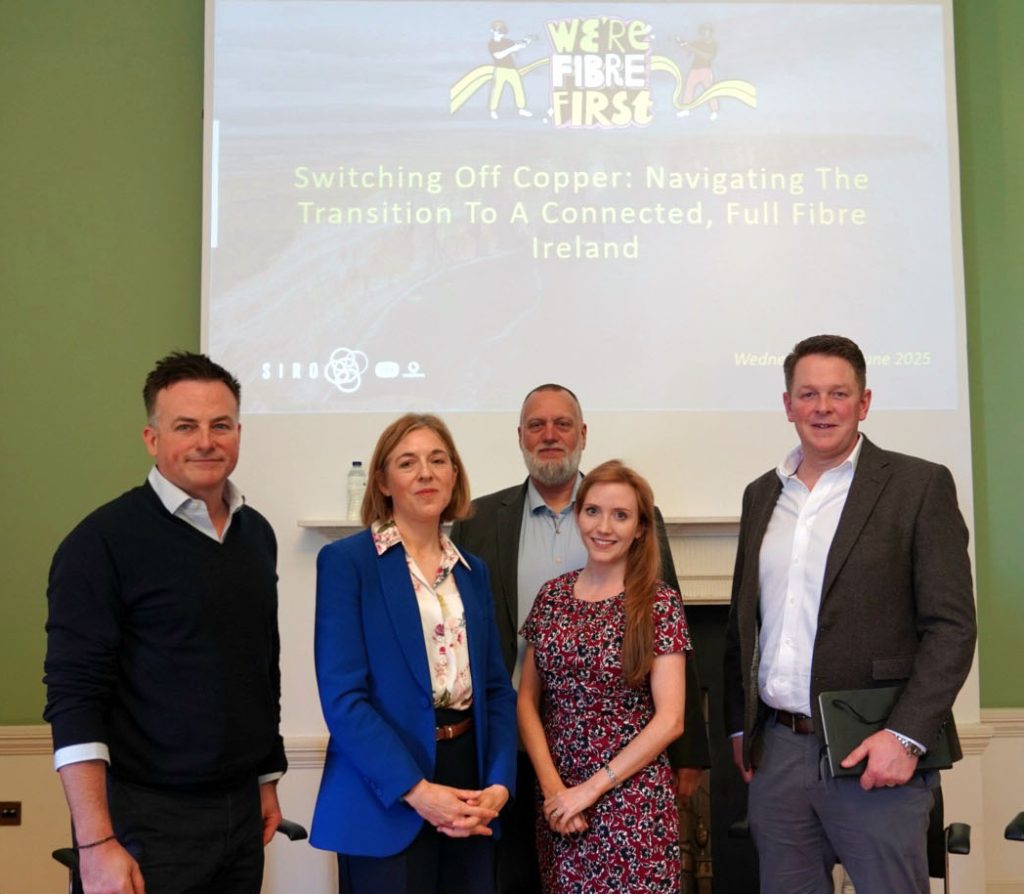Ireland Risks Falling Behind European Peers In Telecoms Network Switch Off
Despite new data which has been published today by Comreg, which indicates that more than 75% of Irish premises can now access fibre to the premises (FTTP) broadband, Ireland still lacks a national copper switch off plan.
The 75% availability figure is a key threshold figure under which it is permissible that the first stage of the copper switch off process can now commence. This process would ensure that outdated copper broadband which is increasingly unfit for purpose and struggles to meet modern data demands can be switched off in favour of faster and more resilient fibre broadband.
However, Ireland’s lack of progress stands in stark contrast to strides made by other European countries like Spain, who announced last month that it had completed its copper switch off process. While other countries such as France, Portugal and Sweden are expected to match Spain’s achievement in the near future, Ireland still lacks any national strategy to achieve the EU goal of decommissioning legacy copper networks by 2030.
In the UK, which has set a target of January 2027 for its copper switch off, dubbed “The Great British Switch Off”, proactive industry and Government collaboration, planning and implementation is actively taking place to ensure that the process is effective, transparent and widely understood by consumers and businesses.

Wholesale fibre optic broadband operator SIRO hosted an industry event this week, bringing Irish and international experts together to discuss and debate how Ireland can best approach copper switch off in the years ahead.
International telecoms expert, Benoit Felten, Partner at Plum Consulting, noted:
“All European countries including Ireland need to recognise that the benefits of copper switch off far outweigh any perceived risks. These positive benefits include an acceleration of the digitisation of businesses and public services; a faster return on public and private investment in full fibre networks; and environmental and climate change benefits – moving away from more energy-hungry copper to energy efficient fibre networks, which are also more resilient in the face of weather extremes such as storms or higher temperatures.
“In countries such as Spain, which announced a few weeks ago that it has completed its process of copper switch off, or France, where the process is well advanced, copper switch off occurred without any significant issues emerging, which indicates that, once well planned and executed by key stakeholders, it can be an effective process”, added Mr. Felten.
SIRO’s Chief Commercial Officer, Ronan Whelan added:
“Comreg data published today indicates that over 75% of all premises in Ireland are now able to access fibre to the premise broadband. This threshold figure means that, subject to set requirements, the conditions for commencing the process of copper switch off now exist.
“Moving closer to switching off copper technology, which has existed in Ireland for over 100 years but is no longer fit for purpose in terms of data demands and speeds now required in Ireland, is a hugely positive development for Ireland’s future social and economic growth. Up to €5 billion is being spent on upgrading our broadband networks to full fibre, with Ireland on track to be fully fibred by 2028, if not before. It is now time to leverage that investment in a constructive way that benefits Ireland and positions us as a technologically advanced economy on a par with other leading EU and global states.
“For Ireland to keep pace with these developments, we need to be ambitious and set out a comprehensive plan with the input of a range of stakeholders to ensure Ireland is to the fore of this digital transformation, not following it ”, added Mr. Whelan.
Read more on the copper switch off here.
